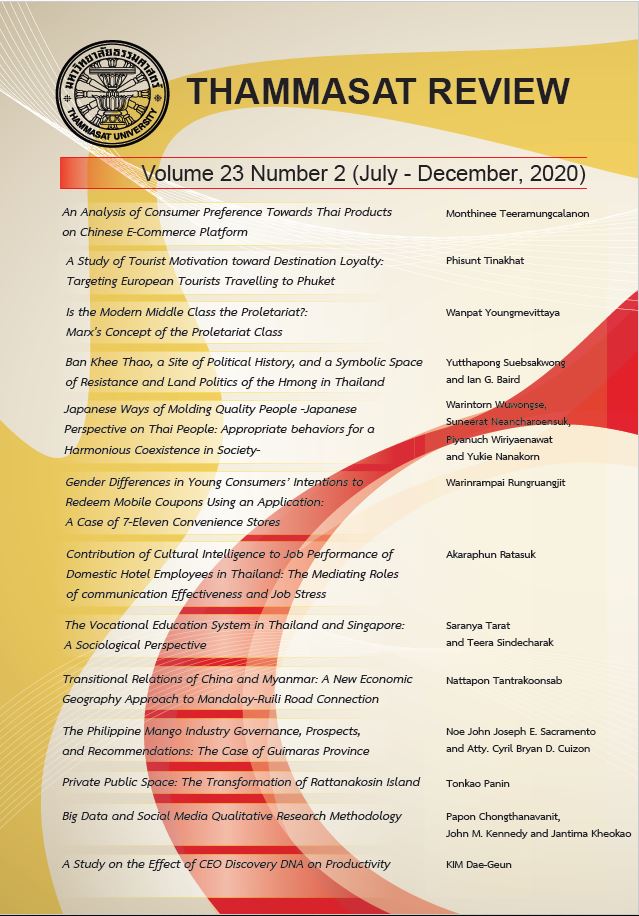Ban Khee Thao, a Site of Political History, and a Symbolic Space of Resistance and Land Politics of the Hmong in Thailand
Keywords:
Ban Khee Thao, Hmong being, Cold War, Communist Party of Thailand, Space of resistance land politicsAbstract
The aim of this paper is to study a Hmong social movement that has its roots in the Cold War and is focused on their requesting the return of land concerning Ban Khee Thao. The community in question is located in the border area of three provinces of Phitsanulok, Phetchabun, and Loei in Thailand.In this study, Ban Khee Thao - a community that was physically dissolved during the Cold War - is a site of the Hmong political history and the imagined and symbolic space of resistance.A group of Phu Pattana Chat Thai, or Collaborators for Developing the Thai Nation (CFDTN), formerly with the Communist Party of Thailand, are focusing their efforts on requesting permission to go back to their domicile community or “qub zej qub zos” in Hmong, drawing on the Thai government amnesty policy 66/23 from 1980. The emergence of Ban Khee Thao and this social movement represent the Hmong being, which follows Edward Soja’s tri-alectics of Spatiality, Historicality, and Sociality, rooted by Lefebvre’s theory, and which are concerned with the social production of struggle. The Hmong being of social struggle, according to our study, demonstrates that the Hmong have a long history of struggling to adapt themselves to the political environment and diverse forms of domination and destruction. They have faced robbery and disease, the Cold War which has been running up until today and the symbolic struggle of land politics which social memory and political history are the site. This analysis of Hmong being emphasizes the heterogeneity of Hmong society and that the Hmong are not just a unified semi-nomadic group of tribal people, as is often presented in structuralist depictions included in some agrarian and cultural studies of the Hmong (people). Therefore, this study presents their diverse roles (that are) involved in each political situation.
Downloads
Published
How to Cite
Issue
Section
License
The opinions and ideas expressed in all submissions published in Thammasat Review are solely that of the author(s) and do not necessarily reflect that of the editors or the editorial board.
The copyright of all articles including all written content and illustrations belong to Thammasat Review. Any individuals or organisation wishing to publish, reproduce and distribute a particular manuscript must seek permission from the journal first.








